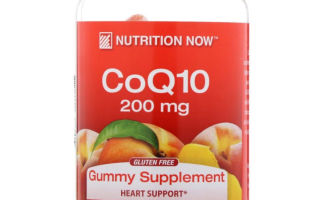Content
Coenzyme Q10 is a benzoquinone derivative. The coenzyme takes part in intermolecular, intramolecular and reproportionated reactions. Coenzyme Q10 exists in two active forms: oxidized ubiquinone and reduced ubiquinol. The latter is the restored form of the former. Before you start using the product, you need to find out which is better than ubiquinone or ubiquinol, what qualities the coenzymes have.
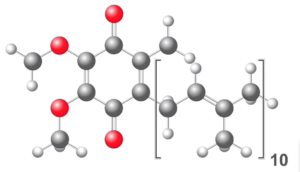
What is Coenzyme Q10
A vitamin-like component is found in all cells of the body. Ubiquinone is also known as CoQ10 or coenzyme Q10. It is a natural antioxidant used to generate energy in cells. Protects against oxidative damage.
Coenzyme Q10 is obtained from dietary supplements and products. Doctors believe that cardiovascular pathologies, diabetes mellitus and cancer are associated precisely with a lack of this coenzyme. It is still unknown whether or not ubiquinone decreases under the influence of diseases.
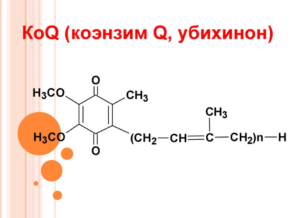
Coenzyme Q10 is produced in the mitochondria. Can be synthesized from amino acids. With a decrease in the level of ubiquinone, a person feels a decrease in the defense of the immune system, and some diseases become aggravated.
What is ubiquinone for?
Ubiquinone is essential for energy processes in the body. The coenzyme takes part in the CPE (electron transfer chain).
Ubiquinone is essential for antioxidant action. It traps free radicals. Another function of coenzyme Q10 is oxidative regeneration using the glycolysis system, fatty acid oxidation, tricarboxylic acid cycle, protein synthesis and other enzyme systems of the body. This allows the antioxidant activity to be restored to ubiquinone.
Since coenzyme Q10 is a key coenzyme of the energy generation process, it acts on almost all human organs and systems:
- enriches the heart with oxygen;
- helps the pancreas to normalize blood sugar levels;
- takes part in the prevention of malignant tumors;
- protects the heart;
- strengthens the immune system;
- neutralizes the effect of biogenic amine;
- increases vitality;
- protects cells from rapid aging (rejuvenates the skin at the molecular level) and damage by ultraviolet rays;
- maintains the elasticity and youth of the skin;
- strengthens blood vessels and normalizes blood pressure.
Coenzyme Q10 is essential for improving fertility and egg quality. The use of ubiquinone increases the chances of successful conception and has a positive effect on the embryo.
The proliferation of endometrial cells, infertility of unknown origin, polycystic ovary and PNI, menstrual irregularities, etc. are associated with oxidative stress. An antioxidant is needed that will increase the chances of conception, it is ubiquinone.
Coenzyme Q10 improves egg and sperm quality, fertility rates and sperm motility.
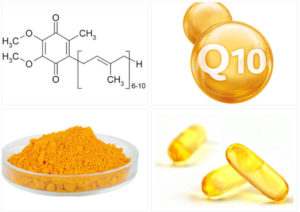
Which is better - ubiquinone or ubiquinol
There are two forms of coenzyme Q10 - ubiquinone and ubiquinol (ubiquinol). When CoQ10 is consumed, it is converted into a second form in the body. Ubiquinol is more active, absorbed faster. Accordingly, it is more expensive.
The biological properties of ubiquinol include:
- antioxidant action;
- improved blood count;
- support for the functions of the epithelial membranes;
- support of ion channel conductivity.
The difference between ubiquinol and ubiquinone is that it absorbs water well and increases oral bioavailability. This gives a higher efficiency and will save on medications.
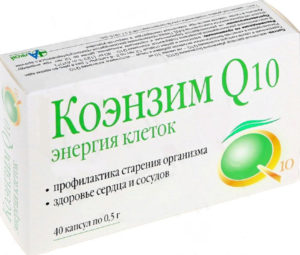
Ubiquinol is more bioactive than ubiquinone. To obtain a blood concentration of 3.5 mgl / ml, you need to consume 1200 mg of coenzyme Q10, and only 150 mg of ubiquinol is needed. Ubiquinol is better, it is consumed more economically and absorbed faster. This is confirmed by the results of clinical studies.
The benefits of ubiquinone
Studies have been conducted on the benefits for the body, 420 people took part in them. The test results and patients' well-being improved after two years of ubiquinone use. Doctors noted a decrease in mortality among patients with heart failure, especially among women.
For the heart, the coenzyme ubiquinone is beneficial in that it improves its functions. It reduces symptoms and helps treat disease, and increases ATP production.
The benefits of ubiquinone for the human body:
- Reduces headaches by reducing the inflammatory process in the walls of the vessels of the brain. The study found that supplementation by the subjects significantly reduced the number of migraine complaints.
- For athletes, its benefits include increased strength and endurance. Ubiquinone promotes rapid recovery from severe muscle strain.
- The coenzyme increases the sensitivity of receptors in cells. Thanks to this action, the body independently regulates the amount of sugar in the blood. When glucose levels are low, coenzyme Q10 increases glucose concentration.
- The antioxidant action of ubiquinone protects cells. The coenzyme prevents free radicals from affecting healthy cells and protects against oxidative stress. Its benefit is to reduce the likelihood of cancer recurrence.
- Ubiquinone has a beneficial effect on brain cells. Protects against oxidative damage and reduces the effects of harmful components that can lead to brain disease (Alzheimer's and Parkinson's).
- When using ubiquinone, the risk of developing pulmonary pathologies decreases. Reduces the inflammatory process in persons with asthma. The need for taking steroid medications decreases.
- Ubiquinone is an essential coenzyme in adipocyte segregation. Strengthens this mechanism and reduces weight.
Also, ubiquinone accelerates the recovery of fast-growing tissues, especially the gingival mucosa.
The use of ubiquinone during pregnancy is not recommended, as well as for persons prone to pressure drops and hypotension.
Where is ubiquinone found
The main source of coenzyme Q10 is biosynthesis, which requires 12 genes to function properly. Also, a lack of Q10 is formed with genetic defects.
To compensate for the lack of coenzyme, certain foods should be consumed.
The content of coenzyme Q10 is presented in the table:
| The product's name | Quantity in 100 g, indicated in mg |
| Olive oil | 4,1 |
| Peas | 2,7 |
| Mackerel | 10,1 |
| Parsley | 1,57 |
| Soy | 3 |
| Beef liver |
| 0,4 | |
| Tuna | 0,29 |
| Sesame | 1,8-2,3 |
| Fried chicken | 1,6 |
| Orange | 0,2 |
| Boiled cauliflower | 0,4 |
| Chicken breast | 3,24 |
| Pickled herring | 2,7 |
| Egg | 0,1 |
| Beef shoulder | 25 |
| Peanut | 2,8 |
| Strawberry | 0,1 |
| Soybean oil | 8,7 |
Coenzyme Q10 is present in broccoli. With frequent use, it will be possible to prevent heart disease and blood clots. This action is due to the presence of antioxidants, including coenzyme Q10.
The richest source of coenzyme is spinach. In addition to the presence of coenzyme Q10, it is rich in fiber, minerals and vitamins.There are also other beneficial substances that protect cells from oxidative stress.
Coenzyme Q10 is found in fish, nuts, liver, and heart. In addition, it is synthesized in the intestine on its own, during normal functioning of the whole organism.
Indications for the use of ubiquinone
There are several types of ubiquinone preparations. Each type is used for different purposes. Indications for the use of ubiquinone:
- Solution for injection is used to stimulate defense mechanisms against toxins. The drug is prescribed for degenerative diseases of the cell phase, impaired functioning of blocked enzyme systems. The medication is allowed for children from 6 years of age.
- Coenzyme Q10 3 blister in capsules is designed to protect the system of organs that provide blood circulation, is indicated for maintaining energy metabolism of cells and rejuvenation at the cellular level. Coenzyme Q10 is effective against obesity, respiratory system diseases, fatigue, asthma, stomatitis and chronic infectious diseases.
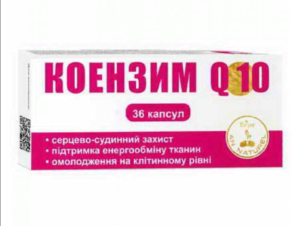
- Doppelgerz Active Coenzyme Q10 is recommended for athletes with increased physical exertion and people who want to lose weight. Effective for boosting the immune system. Reduces premature aging processes.
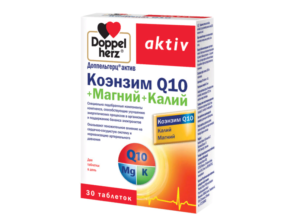
- Dietary supplement Coenzyme Q10 60 mg capsules - an additional source of coenzyme. It is indicated for diseases of the gums and teeth, restores blood pressure.
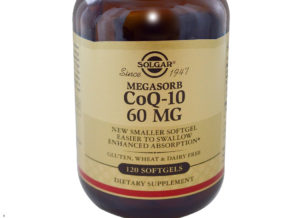
- Coenzyme Q10 Ultra Healthway tablets have the same indications as Coenzyme Q10 capsules. They support the energy metabolism of cells.
Most drugs are contraindicated in children under 14 years of age, with hypersensitivity to the active coenzyme or additive components.
Top 9 best pill and oil capsule manufacturers:
- NUTRITION NOW;
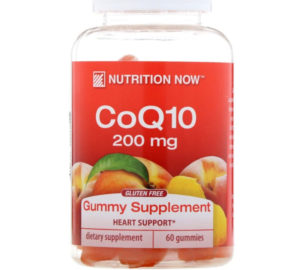
- MRM;
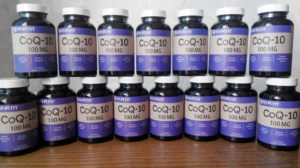
- California Gold;
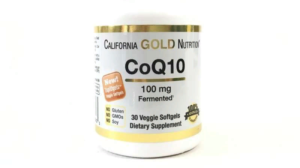
- Healthy origins;
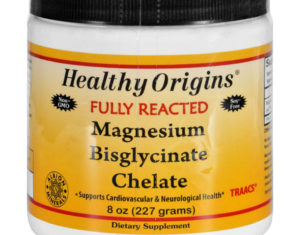
- Solgar;
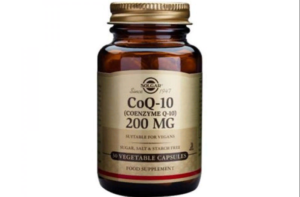
- Doctor's Best;
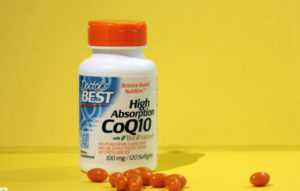
- Doppelgerz Active;
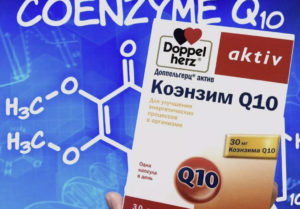
- Evalar;
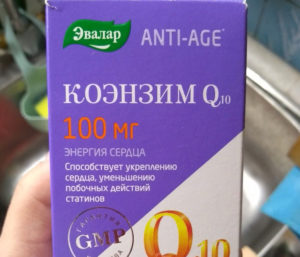
- Natural
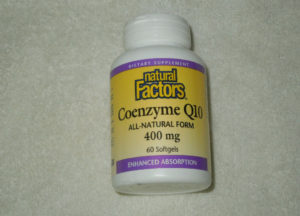
Ubiquinone in cosmetology
Coenzyme Q10 has an effect on skin rejuvenation and regulates metabolic processes. Coenzyme increases skin hydration and cleanses it. In cosmetology, it is added to cream, milk, anti-cellulite and modeling wraps, shampoos, serums and masks.
Coenzyme is obtained from algae, which are mined in the Sea of Japan. They are dried, washed, crushed. The powder turns out to be orange. With prolonged exposure to light, it decomposes and darkens, therefore requires careful handling for technical reasons.
When there is not enough coenzyme, the skin becomes thinner, less elastic and reacts to external stimuli. Until the age of 40, coenzyme Q10 is synthesized on its own, after 40 years, the production decreases and it is from this period that it is recommended to use creams with coenzyme.
Mesotherapy with ubiquinone is more effective. Manipulation allows you to quickly achieve a rejuvenating effect. The procedure is carried out in specialized salons. Coenzyme Q10 is used to prepare various cocktails. It is recommended to combine with hyaluronate, short protein fragments and extracts from medicinal plants.

One course of mesotherapy consists of 12 sessions. The procedure is carried out 3-4 times every 7 days. In order to prolong the effect, injections are given. The coenzyme is injected once every 2 weeks. After 40 days, ubiquinone injections can be given every 20 days.
Use in cosmetology is contraindicated in pregnant and lactating women. Injections of ubiquinone for the face are prohibited for hypotensive patients and patients with unstable blood pressure.
Ubiquinone analogs
When choosing a drug, pay attention to the composition.There should be no bleaching agents in cosmetics. They destroy ubiquinone. Be sure to look at the expiration date, the less it is, the more natural ingredients in the cream.
Solution for injection Ubiquinone compositum has the following analogues:
- from the category of metabolic drugs Mildronate, Actovegin, Asparkam, Panangin, Neoton;
- from the category of diseases of the heart and blood vessels - Actovegin, Limontar, Cytochrome, Methyluracil.
Conclusion
Ubiquinone or ubiquinol are substances that transport oxygen to cells. Coenzymes affect most reactions. It is a good nutritional supplement for supporting vitality, increasing activity and planning pregnancy.

